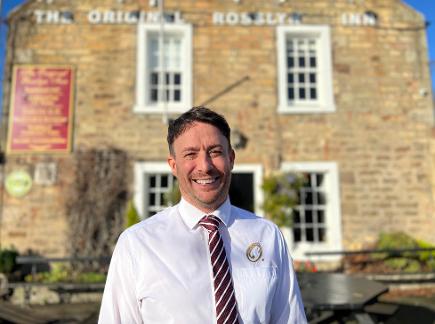Fair Employment and Just Labour Markets
Workers play a huge part in the circular economy and ensuring that they are working in favourable conditions, have good development prosects, access to union rights and fair wages should be paramount for all employers in order for us to build a resilient and skilled local workforce.

How can this be achieved?
• Taking an inclusive approach to ensure that there are job pathways or upskilling opportunities for all.
• Transparency and procedures in place to ensure that all staff receive fair treatment, including the recruitment process.
• Encourage the adoption of Fair Work to ensure that workers rights are protected. The Framework aims for jobs that provide; Respect,
• Opportunity, Fulfilment, Job Security and an Effective Voice.
• Making a conscious effort to move away from zero hour contracts.
• Real Living Wage – There has been a solid uptake of employers becoming accredited and offering a wage which is above the set government minimum and takes in to account the overall cost of living, to tackle poverty and provide workers with a better standard of living.
• Encouraging employers and employees to open the dialogue regarding Flexible working. Whilst hybrid working may have highlighted this in past few years, there are still many keen to work but are unable to commit to the standard 9-5.
The Importance of the Fair Work Convention
• The Fair Work Convention has been in place since April 2015 and acts as an independent advisory body to Scottish Ministers.
• The Fair Work Vision By 2025, people in Scotland will have a world-leading working life where Fair Work drives success, wellbeing and prosperity for individuals, businesses, organisations and society.
• Definition Fair work is work that offers all individuals effective voice, opportunity, security, fulfilment and respect.
• Purpose To balance the rights and responsibilities of employers and workers which can generate benefits for individuals, organisations and society.
Importance of an Inclusive Workforce
The Equality Act came into place in 2010 and aims to protect people from discrimination, harassment and victimisation.The 9 protected characteristics under the Equality act are; Age, Disability, Gender Reassignment, Marriage and Civil Partnership, Pregnancy and Maternity, Race, Religion or Belief, Sex and Sexual Orientation. An inclusive workforce should provide a diverse and inclusive workforce, which acknowledges and celebrates individuality.

Richard Harris, Director at Roslin Inn Ltd, explains how their long-established family business has found strength by having an inclusive workforce;
“We believe an inclusive workforce is a stronger workforce. The fulfilment of witnessing people grow in ability and assuredness is one of the most rewarding achievements in hospitality. Through patience, supportive coaching, understanding limitations, and addressing individual concerns we can plan a bespoke route that develops a happy, productive team member.
Belonging to a progressive positive culture helps candidates lacking in
confidence, realise accomplishments and builds personal belief.
The growth that comes with helping others develops empathy in the workforce, benefiting customers and team members alike. We have found the rewards of this approach generates contented, motivated, fulfilled loyal employees.”